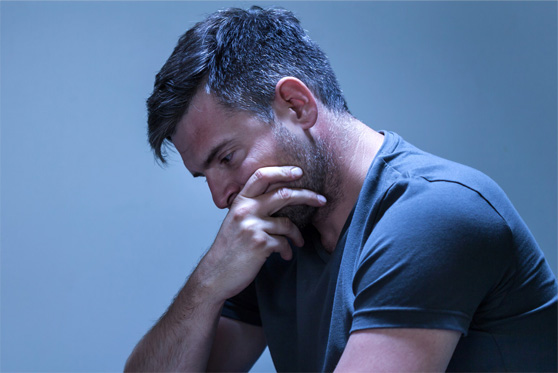Loss and Grief

Grief can manifest in the form of immense emotional and physical suffering, and we may experience anger, guilt, sadness, and despair. Initially, people who experience grief may also experience confusion, shock, and disbelief that their loved one has passed away. There may a feeling of ‘this can’t be happening,’ or ‘is this real?’ Other times, there may be relief that the person is no longer suffering, or relief that a normal routine of life can once again be established. These, and others, are all normal part of the grieving process. People can grieve in different ways, and there is no ‘right’ or ‘wrong’ way to grieve.
Mourning A Loved One
It is not easy to cope after a loved one dies. You will mourn and grieve. Mourning is the natural process you go through to accept a major loss. Mourning may include religious traditions honoring the deceased, or gathering with friends and family to share your loss. Mourning is personal and may last months or years.
Grieving is the outward expression of your loss. Your grief is likely to be expressed physically, emotionally, and psychologically. For instance, crying is a physical expression, while depression is a psychological expression. It is very important to allow yourself to express these feelings. Often, death is a subject that is avoided, ignored or denied. At first it may seem helpful to separate yourself from the pain, but if anxiety or depression lingers from the loss, it will be important to get help in counseling. Unresolved feelings can sometimes result in physical illness or inadequate psychological functioning.
Many people report physical symptoms that accompany grief. Stomach pain, loss of appetite, intestinal upsets, sleep disturbances and loss of energy are all common symptoms of acute grief. Of all life’s stresses, mourning can seriously test your natural defense and immune systems. Current illnesses may worsen or new conditions may develop if there are unresolved feelings. Profound emotional reactions may occur. These reactions include anxiety attacks, chronic fatigue, and depression.
Moving on with your life after the loss of a loved one does not mean you are forgetting about the person. You can move on with your life and keep the memory of someone, or something you lost, as an important part of you. In fact, as we move through life, these memories can become more and more integral to defining the people we are.
There are numerous areas in life that can cause loss and grief:
• World events, mass shootings, terrorism
• Divorce
• Death by suicide
• Death by overdose of alcohol or drugs
• Loss of a pet
• Losing a friendship
• Serious illness of yourself or others
• Loss of income or financial stability
• Loss of home or belongings to flood, weather events, fire.
• Not achieving expected goals in life
• Car accident
• Domestic Violence
• Empty Nest/children leaving home for the 1st time
• Any sudden life change
Even subtle losses in life can trigger a sense of grief. For example, you might grieve after moving away from home, graduating from college or, changing jobs. Whatever your loss, it is personal to you, so do not feel ashamed about how you feel, or believe that it is somehow only appropriate to grieve for certain things. If the person, animal, relationship, or situation was significant to you, it is normal to grieve the loss you are experiencing.
Crying over your loss does not mean you are weak. Crying can be a normal emotion for devastating or sad events. Allow yourself to feel all of your feelings. It is also ok not to cry over the loss. There are many ways to grieve, and crying is only one of them. Whatever the cause of your grief, there are healthy ways to cope with the pain. In time, your sadness will lessen, and you will come to terms with your loss, find new meaning, and eventually move on with your life. It can be helpful to seek counseling after a loss, and most people find comfort in being able to talk about what happened. Counseling can help people gain a new perspective about the loss, and help them feel emotionally better.
